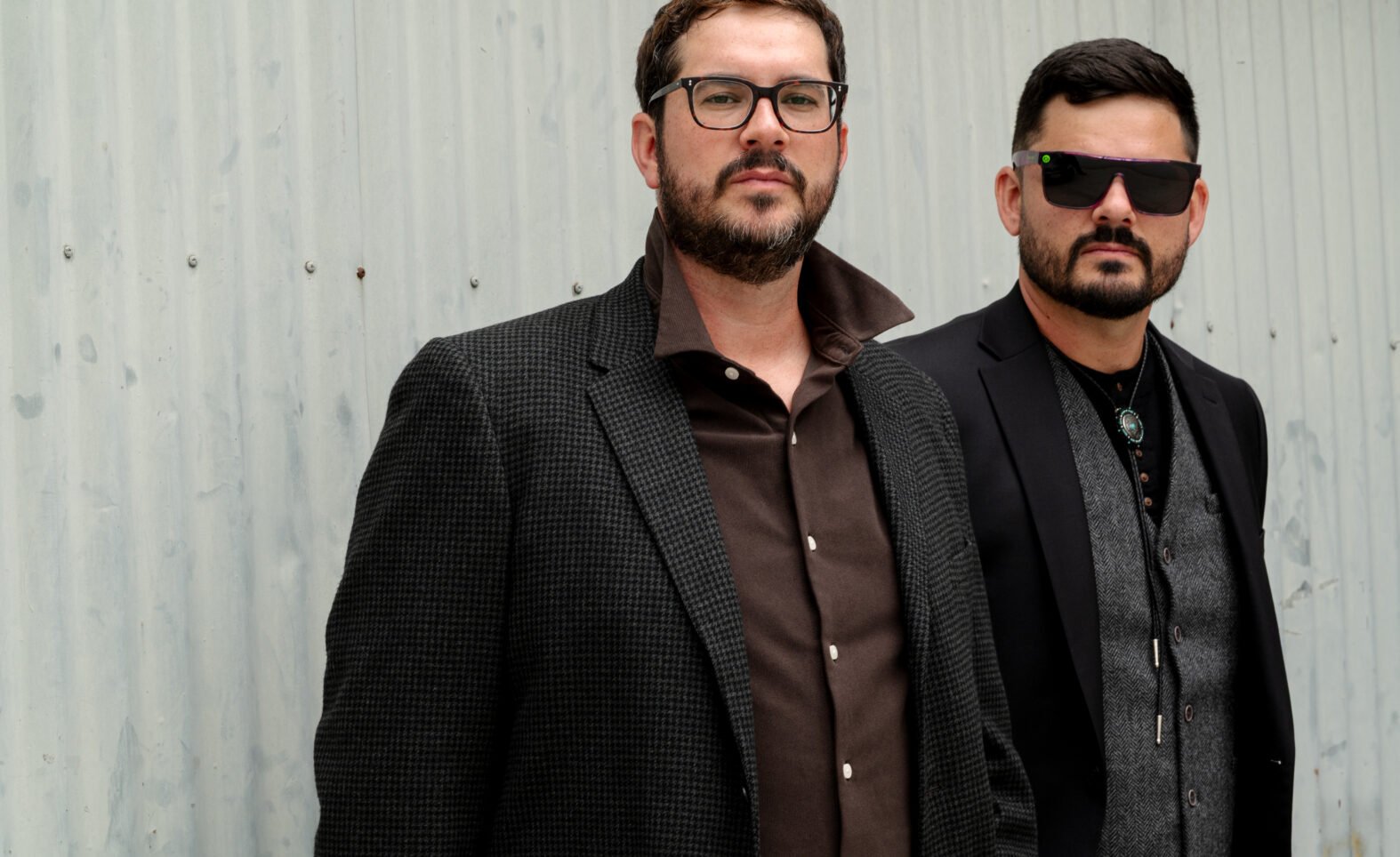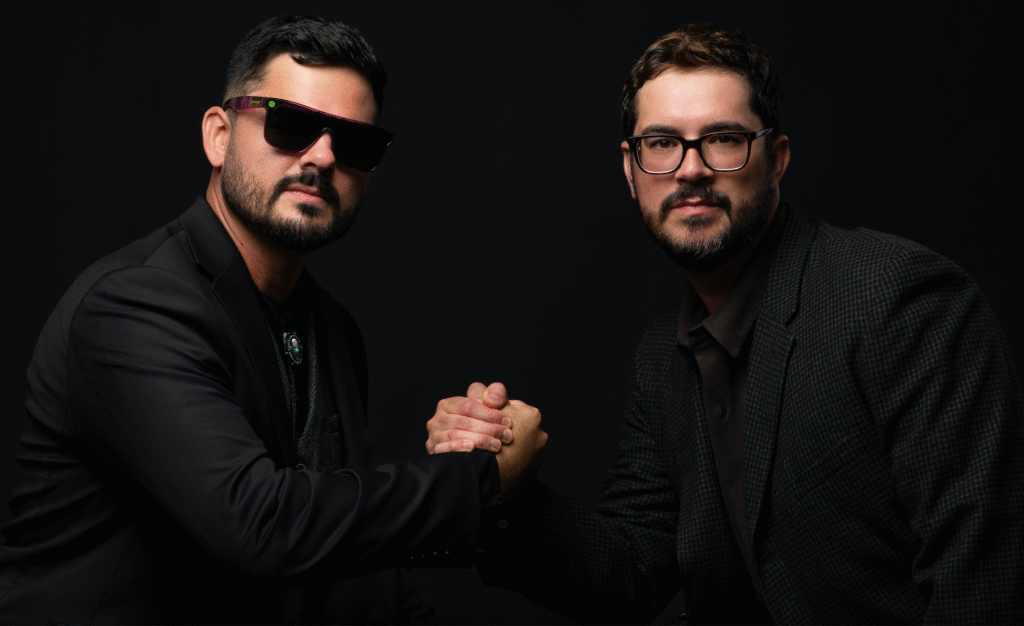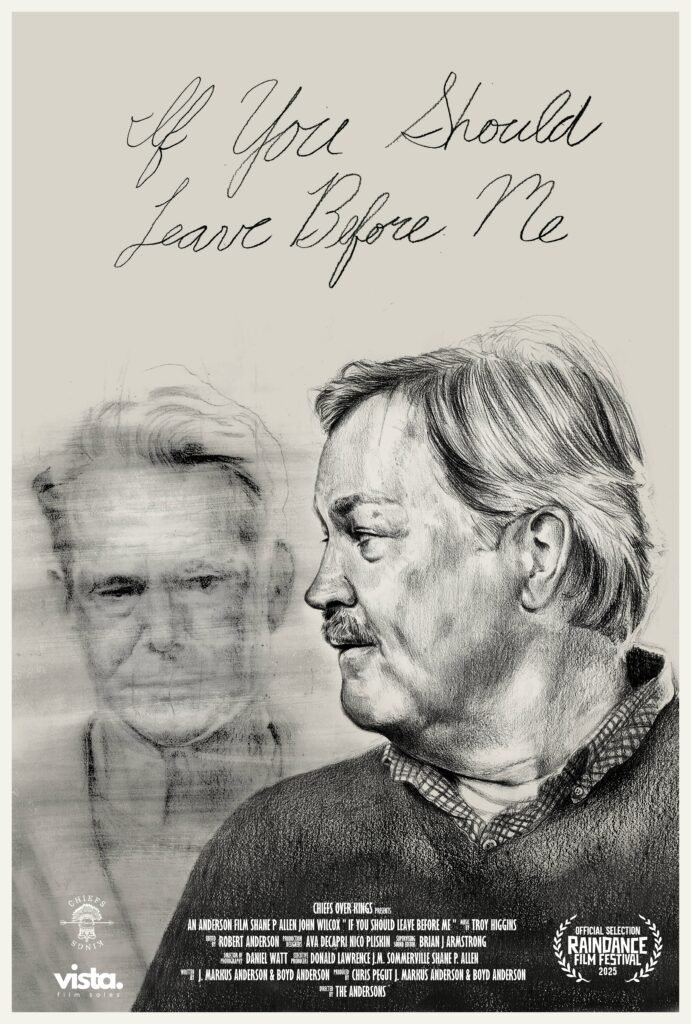Shailene Woodley, Ben Foster, And Pablo Schreiber Join Cast Of Alan Ritchson Action Thriller Motor City From Stampede Ventures
Potsy Ponciroli Directing Picture Which Commences Photography In July May 10, 2024 – ...

You know a film is special when it dares to sit with the ache of loss and still finds a way to cradle it in beauty. ‘If You Should Leave Before Me’, the debut feature from Chumash filmmaking brothers J. Markus and Boyd Anderson, is one such film.
Born from a deeply personal place of grief, the story follows a couple navigating the emotional aftershocks of love and death, with the fantastical twist of working as guides for souls crossing over to the afterlife. What unfolds is not just a narrative about letting go, but a meditation on memory, intimacy, and the quiet resilience of those left behind.
In this conversation, the Andersons pull back the curtain on their creative process, sibling collaboration, and the healing power of storytelling.
1 . All right. As brothers, when did your love for filmmaking start? And who caught the bug?
BOYD: Well, I think it would have to be Markus first because he is older. I remember he would always make my friends and I be in his films. We shot tons of, I guess you could call them shorts. And I was probably like, what, eight or something?
MARKUS: Yeah. I would always take you guys and be like, “Hey, you’re going to do this film with me.” It was just, some random stuff. Usually it was inspired by Jackass. Or anytime I had school projects, I would always try to make sure that I could do some sort of film.
2 . How would you both describe collaborating with a sibling?
MARKUS: It’s pretty easy. I know a lot of people think, “Oh, no, brothers are directing together!” because I guess they don’t get along with their siblings.
BOYD: But we’ve always gotten along really well, so it works pretty nicely. We argue, you know, it’s not all sunshine and rainbows. But for the most part, it’s easier than working with anyone else.
3 . What was the emotional spark or moment that first inspired you to write If You Should Leave Before Me?
BOYD: I feel like we didn’t even realise how emotional this was going to be until after we wrote it. We just wanted to challenge ourselves. We heard Taylor Sheridan talk about how he wrote a script in a month. I think it was Hell or High Water, I’m not sure, but we tried to write it in a month and we told one of our friends we’re going to make her cry, and this is what poured out. But, you know, after further discovery, it was probably a lot of trauma dumping.
4 . The film uses fantasy elements to explore grief. Why did you choose this approach instead of a more traditional drama?
MARKUS: We knew as indie filmmakers, we really needed to do something to stand out from the bunch. Lots of movies come out and we knew we needed to break the mould a little bit to give ourselves some recognition. But also we knew it was a challenge because if we didn’t do it right, then people wouldn’t like it.
BOYD: Yeah, the traditional way to write this, even with the fantasy elements, would be showing the first time a door appears and their journey through it, letting the audience learn along with the characters. But this isn’t a story of firsts, it’s a story of lasts.
5 . Did either of you have any personal experiences with grief that shaped or influenced the characters of Mark and Joshua in your film?
MARKUS: Yeah, so during COVID, unfortunately, we had a lot of deaths in our family. We lost our grandparents, and also my in-laws within a very short period of time.
BOYD: We didn’t grow up really knowing how to express emotions in our family, probably because there was, you know, a lot of death around when we were growing up. So, I think maybe this is how we do it, with our writing.
6 . The film has a heavy theme of guiding the recently deceased to the afterlife. Was this something that you both had spoken about before, or just happened to have taken shape whilst making the film?
BOYD: The whole writing experience was a blur. They were very long days. It was just a month. We argued about every single word in the script, so there was definitely conversation about it. Everything was very specifically chosen. Like the order of the rooms was chosen for the flow of the storytelling and the audience experience.
MARKUS: I remember an early version of the script where the character Mark was going to other homes, and he was taking little items from people’s houses and using that to kind of figure out things about those people’s lives. Then we were like, “Oh, that means we have to go to other locations. Let’s keep it in one location, but with portal doors.”

Boyd Robert Anderson (left) and J. Markus Anderson (Right)
7 . You seem to have found the perfect leads to star in this film. What was the casting process like and what led you to settling on both Shane Allen and John Wilcox?
MARKUS: We like to do blind table reads when we finish a script, bringing in actor friends. They don’t know the story. They don’t know the characters. They know nothing. They sit down with a script that has a character pre-highlighted, flip it over and we just start reading. Shane came in and read for Mark. John came in and read for Joshua just because they were friends of ours, and we like to work with them. Honestly, partly through this reading we were kind of blown away by their performances and connections to the characters.
BOYD: We still auditioned a lot of people because we didn’t want to just choose the first ones. Probably hundreds, and no one came close.
8 . Can you walk us through a particularly difficult day on set and how you got through it?
BOYD: Yeah. Wow. There’s a lot of difficult days. This is our first feature film. So just that alone. There were so many decisions along the way where we had to choose a path. Like, do we hire a bunch of people to do this, or do we do it ourselves? Do we go SAG or not? And I think we made every right decision, but there was no way to know for sure. So, just every day was a challenge, almost like a fight. But we got through it. It was fun.
MARKUS: Literally every day. Even down to just random things, like, the warehouse that we rented was basically condemned and the toilets stopped working halfway through shooting. They started overflowing. Robert and I have a construction background, so during lunch, Robert’s fixing the plumbing on the toilets. It’s not very glamorous … actually, incredibly unglamorous.
9 . Were there any story or visual elements you had to abandon due to budget constraints?
MARKUS: Honestly, we got most everything we wanted. I think there was a moment where (in the final scene) we wanted another door appearing into the floor as it raised but there was just so much happening in that scene already.
BOYD: Also, we already cut a lot from this film. The first edit was three hours, and the scenes we cut were some of our favorites, Some really great stuff.
10 . Another component of the film that can’t go unnoticed is the sound design. How important was it for you to achieve this? And how was the creative process for that?
BOYD: I’m glad you noticed, because we are incredibly lucky to have this team. Our audio team is probably the most famous people on the project. Brian Armstrong and his team just won Emmys for Shogun, and he brought Brittany Ellis who mixed Monarch: Legacy of Monsters. We have always pushed to have the best audio on our projects but we just were never capable ourselves, hiring the right people is the best thing you can do. You let them get creative and collaborative and when we were able to go into the mixing stage with them for final mix. That was honestly the most fun we had making movies.
MARKUS: And musically we got lucky, too. We’ve known Troy (Troy Higgins, Composer) for quite a few years. We all worked in the same movie theater. We did a short film, LIMBO, and he scored it. Once we got to this film, we asked him to come on board and he was thrilled to have creative freedom to make each world sound unique. Honestly, he knocked it out of the park.
11 . What message or feeling do you hope viewers take away after experiencing the film?
MARKUS: The film is interesting because it’s not really delivering a full message. It’s more just delivering an experience of having lost someone and that feeling that, at any moment after you’ve lost someone, you feel like you turn a corner and they’ll be there, And it’s just hard to come to terms with that. But we wanted to live through that experience and show there’s another side where you can go back outside, hang out with friends, and not move on but move forward.
BOYD: There was a version that could’ve ended very dark, around self-harm, but we chose a hopeful note. Our other scripts are dark enough.
12 . What’s next for you guys? Another joint project or plans for individual work?
BOYD: Joint project for sure. One of the first scripts we wrote about 15 years ago, called Redwater. It’s a horror parable on the Native American genocide. We are digging into that now. That’s what we will do next.
MARKUS: We are Santa Ynez Chumash and we like to build stories around Native Culture. Redwater dives deep into capitalism, colonialism, and greed told through the eyes of a logging family in Oregon. We wrote it together and will keep collaborating. No solo projects for now. We’ve got too many ideas and twice the speed when we team up.
BOYD: “If You Should Leave Before” was all our grief and sadness. “Redwater” will be all our hate and anger.
13 . Lastly, any advice for up-and-coming filmmakers?
MARKUS: Keep creating. Find fellow artists, writers, cinematographers, actors, and fail your way up. Make things and watch them with friends. It’s not what they say but how they react that matters.
BOYD: Be as prepared as possible. Maximize your pre-production time with storyboards, shot lists, budgets. As an indie filmmaker, you need to know what is going on in every department. There’s no studio to bail you out, so don’t just show up and wing it.

As our conversation came to a close, it was clear that ‘If You Should Leave Before Me’ is more than just a cinematic achievement. For the brothers, it’s a heartfelt and brave offering turning their own vulnerability into something universal. Markus and Boyd aren’t simply telling stories. They are building bridges between past and present, grief and hope, tradition and invention.
And if this debut is any indication, what lies ahead for the Anderson brothers promises to be just as daring, deliberate, and deeply human.
In Conversation With Reina K., brings to you the kind of scoop that gives you a real insight into the mind, drive and craft of filmmakers from across the world.
Leave A Reply